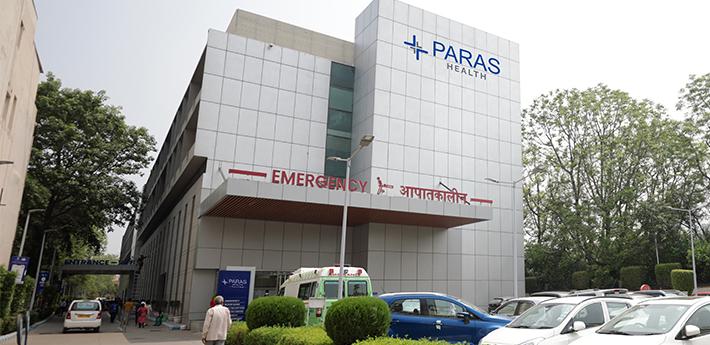Embracing the Technological Revolution in Healthcare
Introduction
In recent years, the landscape of healthcare delivery has undergone a transformative revolution, significantly impacting how we both deliver and receive care. This paradigm shift is primarily attributed to the relentless advancement of technology. In this article, we delve into the multifaceted ways in which technology is reshaping the healthcare sector, enhancing efficiency, accessibility, and overall patient experience.
Telemedicine: Breaking Down Barriers
Telemedicine has emerged as a pivotal force, breaking down geographical barriers and providing unprecedented access to healthcare services. The convenience of virtual consultations has not only bridged the gap between patients and healthcare providers but has also become a cornerstone in preventive care. This is especially beneficial for those residing in regions where access to a multispeciality hospital in Patna might be limited.
Artificial Intelligence: A Game-Changer in Diagnostics
The integration of artificial intelligence (AI) in healthcare is revolutionizing diagnostic capabilities. AI algorithms, powered by vast datasets, can analyze medical images and data with remarkable accuracy, aiding in the early detection of diseases. This not only expedites the diagnostic process but also plays a pivotal role in improving patient outcomes by enabling swift and precise interventions. Such advancements are crucial for the continued development of healthcare facilities, including those in growing healthcare hubs like Patna, where a multispeciality hospital can leverage AI for enhanced diagnostic accuracy.
Wearable Technology: Personalizing Healthcare
The prevalence of wearable technology has ushered in a new era of personalized healthcare. From fitness trackers to smartwatches, these devices monitor various health metrics, providing individuals with real-time insights into their well-being. This not only empowers individuals to take charge of their health but also enables healthcare providers to deliver personalized and data-driven interventions. Imagine the benefits of such personalized healthcare reaching even remote areas, including regions around multispeciality hospitals in Patna, ensuring better health outcomes for the community.
Remote Monitoring: Enhancing Chronic Disease Management
The rise of remote monitoring technologies has significantly enhanced the management of chronic diseases. Patients with conditions such as diabetes, hypertension, or heart disease can now be remotely monitored, allowing healthcare providers to track vital signs and intervene promptly in case of any anomalies. This proactive approach not only improves patient outcomes but also reduces the burden on healthcare facilities. This is particularly noteworthy for areas with a rising demand for specialized healthcare services, such as multispeciality hospitals in Patna.
Blockchain in Healthcare: Ensuring Security and Interoperability
Blockchain technology is making waves in the healthcare sector by addressing critical issues of security and interoperability. The decentralized nature of blockchain ensures the integrity and confidentiality of patient data, mitigating the risk of breaches. Moreover, it facilitates seamless sharing of medical records across different healthcare providers, fostering a cohesive and collaborative approach to patient care. This is a significant advancement for healthcare ecosystems, including those centered around multispeciality hospitals in Patna, where secure and interoperable systems are crucial.
Virtual Reality: Transforming Therapeutic Interventions
The application of virtual reality (VR) in healthcare extends beyond entertainment, offering innovative therapeutic interventions. VR is increasingly utilized in pain management, mental health treatment, and even surgical training. By immersing patients in virtual environments, healthcare professionals can enhance the effectiveness of various therapeutic modalities, providing a holistic approach to healing. This can be particularly impactful in regions with a growing emphasis on advanced healthcare, such as around multispeciality hospitals in Patna.
The Future: Integrating Technology for Holistic Healthcare
As we stand on the cusp of a new era in healthcare, the integration of technology is poised to play an even more integral role. The future holds the promise of seamlessly integrated systems, where patient data flows effortlessly across platforms, enabling comprehensive and coordinated care. From augmented reality (AR) aiding in surgical procedures to the potential of 5G connectivity revolutionizing real-time communication, the possibilities are boundless. This holds true for emerging healthcare hubs like Patna, where multispeciality hospitals can lead the charge in adopting cutting-edge technologies for the benefit of their patients.
Conclusion
In conclusion, the evolving landscape of healthcare delivery is intricately intertwined with the rapid advancements in technology. The fusion of telemedicine, artificial intelligence, wearable technology, remote monitoring, blockchain, virtual reality, and the promise of future technologies heralds a new era of healthcare—one that is not only efficient and accessible but also personalized and patient-centric. This transformation is evident in regions like Patna, where multispeciality hospitals are at the forefront, embracing technology for the betterment of healthcare outcomes.



Comments
Post a Comment